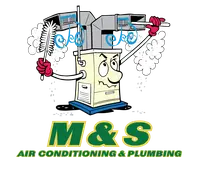Professional Furnace Repair Needs
Most furnaces last between 15 and 20 years. During that time, you may encounter both minor and major issues. Some problems cause strange sounds from your unit while it runs.
Other issues can completely shut down your equipment, making it difficult to maintain a comfortable indoor temperature. Most of the time, we can repair your furnace and get everything up and running the same day.
However, if more serious issues arise, such as a cracked heat exchanger, you might need to replace your furnace with a new model. This is especially true if your current furnace is nearing the end of its life expectancy and you frequently pay for repairs. We can help you weigh the pros and cons of investing in a new furnace.
There are many signs to watch for that can alert you that furnace repair is necessary:
- Sudden rise in utility bills
- Odd noises during operation
- Bad smells coming from vents
- Unresponsive thermostat
- Furnace doesn’t turn on
- Short cycling
- Circuit breaker tripping
- CO detector goes off
You can take a few steps at home to check for a simple fix for your furnace issue. Change your furnace filter every 30 to 90 days. If you neglect to replace the filter, it can clog the air filter and prevent proper airflow. When airflow stops, some units may completely shut down. Particulates can also accumulate on the interior components of your furnace, causing malfunctions.
Also, check your breaker panel. Look for a trip in the circuit that powers your furnace. Resetting the circuit might be all you need to turn your furnace back on. If this happens frequently, contact us. An electrical issue may require prompt repair.
Electrical problems can lead to electrocution or fire, presenting severe safety risks for you and your family. Sudden spikes in your energy bill can also indicate an electrical issue or something more serious with your furnace.
A damaged ignition system may prevent your furnace from starting, while a dirty flame sensor can cause frequent shutdowns. A blocked condensate drain can lead to water damage, and a worn blower belt may create squealing noises.
Pilot light issues and gas leaks pose safety hazards that need immediate attention. A damaged blower capacitor can stop the fan from running, and worn blower bearings may result in grinding sounds. Our HVAC technicians can diagnose these issues and provide expert repairs to keep your furnace running.



